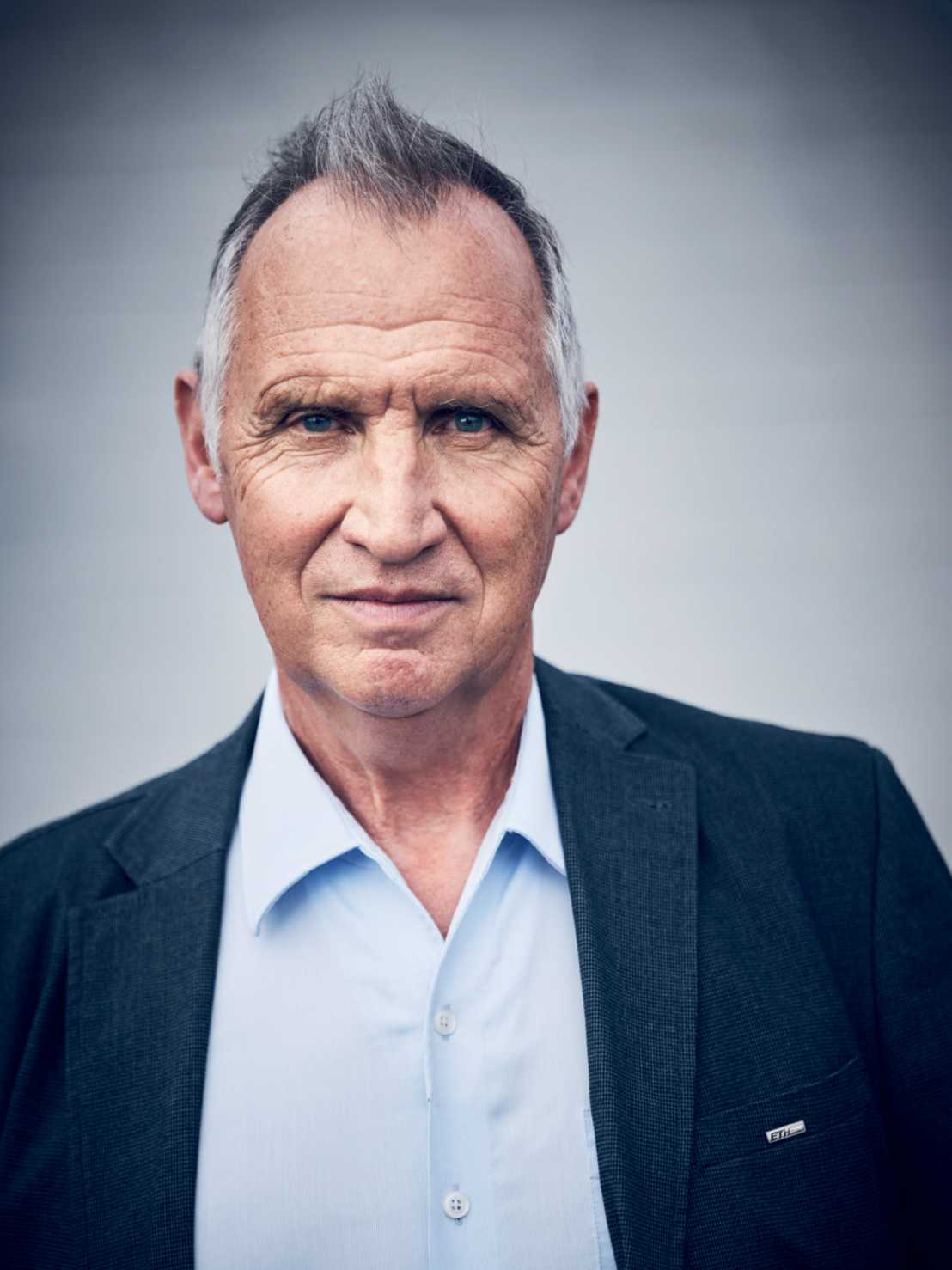André Blanchard will soon have been working at ETH Zurich for 48 years – longer than anyone else. What has kept him here all these years?
In 1990, somewhere in the US state of Utah, a man approaches a patrol car. Inside, a policeman is dozing, his Stetson covering his face, his cowboy boots up on the dashboard. The man knocks on the window. With a scowl, the policeman winds down the window. “Sorry,” the man says in broken English. “I’m from Switzerland. I’m looking for a particular plot of land.” He continues: “I need to set up measuring devices there for the University of Utah. Is this the right way?”
A few radio messages later, the policeman’s fierce demeanour has vanished and he shows his Swiss traveller the way. He even gives him his own more accurate road map. When he reaches his destination, the Swiss man starts to set up a GPS device. The coordinates it measures allows the ground movement to be calculated. He had been given the devices and a car by earth scientists from the University of Utah. They had told him to set out on his own.
Suddenly, something rustles in the bushes and the scientists emerge. They slap him on the back. They had wanted to see whether he would actually manage alone in a strange place as well as their research partners from Zurich had assured them he would.
André Blanchard’s reputation had preceded him. Among the researchers at the Institute of Geophysics and the Swiss Seismological Service, he had made a name for himself as a highly reliable technician who could be trusted to get the job done. Even when faced with difficult tasks, he would always find a way to complete them and deliver results. Today, André Blanchard counts his stay in Utah as one of his many great professional experiences.
There is always a solution

“Utah showed me that there is always a way of finding a solution,” he recalls, and his words reflect the complete composure of this employee who is now the longest-serving staff member at the university: “If you approach others openly, you’ll always find someone who will help you.” André’s openness, his straightforward manner and his ability to listen to others and take them seriously have garnered him a huge amount of respect and appreciation.
He began an apprenticeship in the Department for Industrial Research at ETH in 1976. This department no longer exists, and neither does the apprenticeship he completed to become a precision engineer. At the time, the course was not yet computerised – everything was manual: turning, milling, filing, shaving. Thanks to a combination of research-related craftsmanship and an eye for practical solutions, André developed strong ties with the researchers.
The man of many keys
After spending nine years as a technician at the former Institute of Applied Physics, he switched to the Institute of Geophysics and the Seismological Service, where he continues to work to this very day. He has long since moved on from being a technician and now takes care of much more – from transport to explosions. For some, he is the “logistics manager”, while others cheekily call him the “man of many keys”.
The traces of his work can be seen right at the heart of earth sciences. In the basement of the NO building, there is a seismograph from the old Binningen Observatory, which used to record earthquakes and which Blanchard rebuilt alongside other experts in Zurich. The nice thing about projects like these, he says as someone who hardly ever got assigned to a team, is the opportunity to work together with others. He particularly enjoyed fieldwork, as it required students, researchers and employees to all work together to pull in the same direction.
“ETH is only as good as its working environment,” he says. This credo has guided him over his many years as President of the Staff Commission and as a member of other committees: “You can’t just complain. You have to make an active contribution.”
Like a family
According to André Blanchard, the key reason he has stayed with ETH is his direct environment. He has always been able to put forward his views on things to the researchers, and in return they’ve explained their interests clearly and coherently to him. Having no children of his own, he describes ETH as being “almost like a family” and, with a beaming smile, adds: “Even today, I still get phone calls from researchers whom I met when they were studying here.”
When he starts his retirement next year, he certainly won’t be short of company. Back in 1998, he and his brother bought a farm in the nature reserve near Glattfelden. It is home to fish, horses, cats and a dog. When he turns 65, he will bid farewell to the university and close the ETH chapter of his life after more than 48 years.
André Blanchard is a technical employee in the Institute of Geophysics and in the Swiss Seismological Service (SED). He joined ETH as an apprentice 47 years ago. He was President of the Staff Commission (PeKo) from 2007 to 2018.
Staff Commission of ETH Zurich
The Staff Commission represents the interests and concerns of the administrative and technical staff with respect to the Executive Board and is committed to promoting and strengthening the employees at ETH.
This article was first published in life - the magazine for the ETH community.
Author: Florian Meyer
